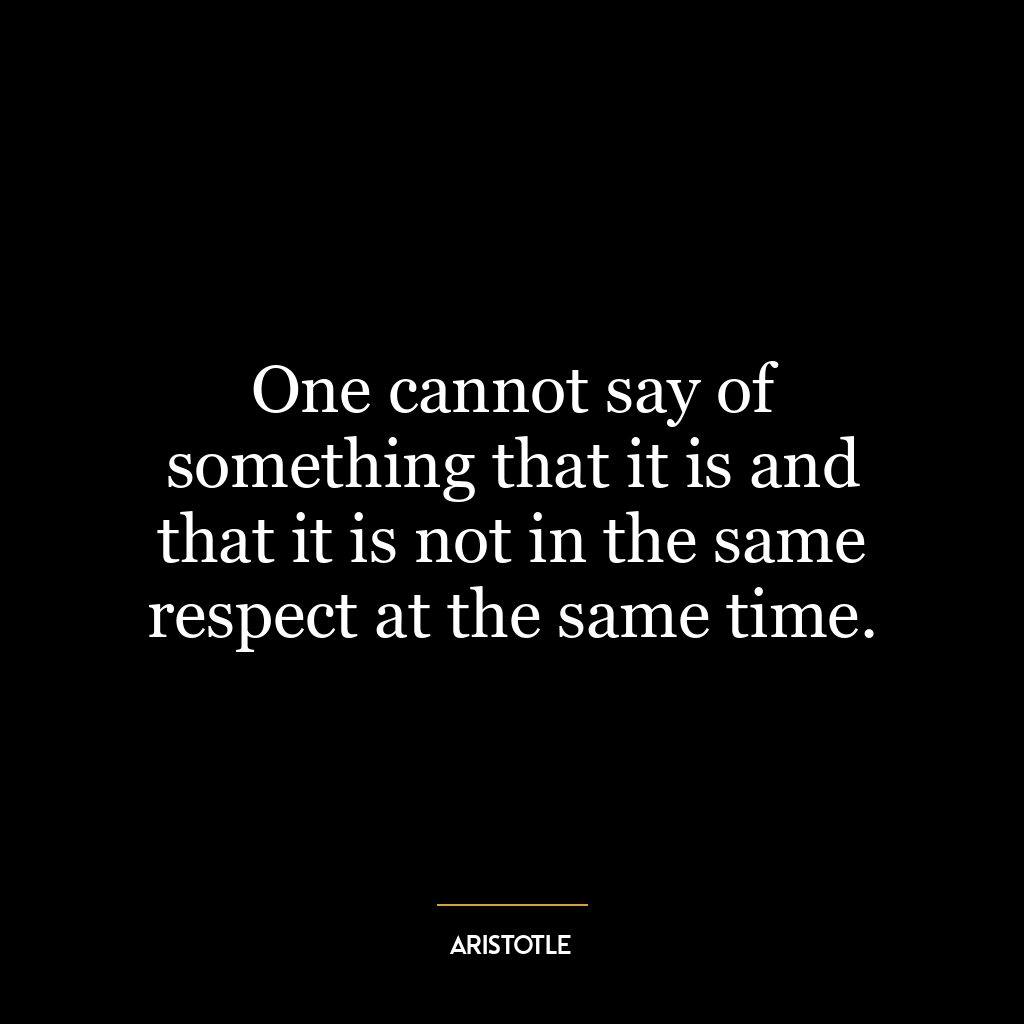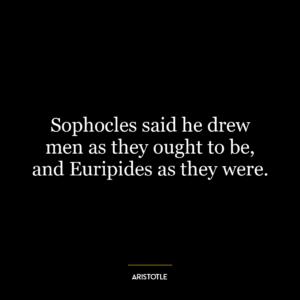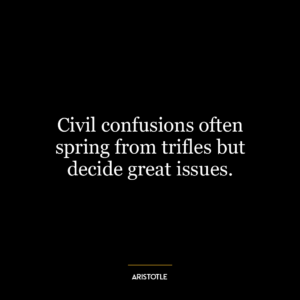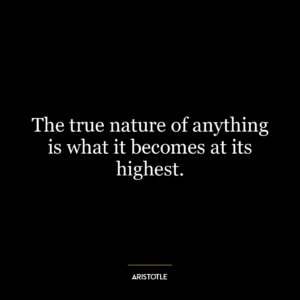Aristotle’s quote, “One cannot say of something that it is and that it is not in the same respect at the same time,” is a fundamental principle of logic known as the law of non-contradiction. This law states that a statement and its direct opposite cannot both be true simultaneously. For example, a ball cannot be both entirely red and not red at the same time.
This principle is foundational to rational thought and discourse. It allows us to make distinctions, to categorize, to reason, and to understand the world around us. Without this basic law, our ability to communicate and understand reality would be severely compromised.
In today’s world, this principle is as relevant as it was in Aristotle’s time. It is applied in every field of study, from mathematics to philosophy, from science to law. For example, in legal proceedings, a person cannot be considered both guilty and not guilty of the same crime at the same time. In science, a hypothesis cannot be both confirmed and refuted by the same experiment at the same time.
In terms of personal development, this principle encourages intellectual honesty and clarity of thought. It challenges us to examine our beliefs and attitudes critically, to seek consistency in our thoughts and actions, and to strive for truth and understanding. It reminds us that we cannot hold contradictory beliefs or attitudes without creating cognitive dissonance, a state of mental discomfort that can lead to confusion, stress, and lack of progress. For example, one cannot believe in the importance of honesty and at the same time justify lying for personal gain.
This principle also has implications for our interpersonal relationships. It challenges us to communicate clearly and honestly, to avoid ambiguity and contradiction, and to strive for understanding and agreement. It reminds us that we cannot say one thing and do another without damaging our credibility and trustworthiness.
In conclusion, Aristotle’s law of non-contradiction is a fundamental principle of logic that underpins rational thought, discourse, and action. It is as relevant today as it was in Aristotle’s time, with wide-ranging applications in every field of study and in personal development.















